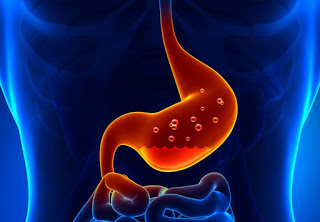Proton pump inhibitors (PPIs) are medications commonly prescribed to treat heartburn and peptic ulcer disease [eg omeprazole (Losec), pantoprazole (Pantoloc), esomeprazole (Nexium), lansoprazole (Prevacid), rabeprazole (Pariet)]. Since PPIs work by blocking acid secretion in the stomach, and since a higher acid content of food lowers its glycemic index, I was asked whether PPIs could increase the effective glycemic index of a meal and thus have a negative impact on diabetes control.
It turns out that PPIs have a very interesting relationship with pancreatic function and blood sugars.
Firstly, as PPIs work by blocking acid secretion in the stomach, PPIs do increase the pH in the stomach and very high up in the small intestine (proximal duodenum). However, there is little to no effect on pH in the majority of the small intestine, where carbohydrates are absorbed.
PPIs raise serum levels of a hormone called gastrin, which is responsible for stimulating acid secretion in the stomach. This is because the gastrin secreting cells in the stomach sense that acid production is low, so more gastrin gets cranked out in an attempt to increase acid secretion.
Interestingly, gastrin stimulates glucose-induced insulin secretion from the beta cells of the pancreas. There is also some experimental evidence that gastrin may stimulate the production of new beta cells. Further, PPIs slow emptying of the stomach, because less acid in the stomach means that it takes longer for solid food to be broken down and be ready to pass into the small intestine.
So, based on these mechanisms, it seems that PPIs could possibly have a benefit to blood sugar levels. While the studies on this are still quite limited, the available evidence suggests that PPIs could lower A1C (a marker of diabetes control) by 0.5% to as much as 1% – possibly as much as a diabetes medication!
PPIs are medications that have benefits but also potential risks, including increased risk of gastrointestinal infections, malabsorption of important micronutrients like calcium, magnesium, vitamin B12, and iron, increased risk of fracture, changes in gut bacteria, and others (note this list is not exhaustive), and they should not be prescribed for the purpose of blood sugar control.
That being said, I will be watching blood sugar control with extra interest the next time one of my patients with diabetes is started on a PPI for their gastrointestinal issues.












